Chad le Clos and Sarah Sjostrom Call For Lifetime Bans & FINA Ceremonies For Those Cheated Out Of Medals
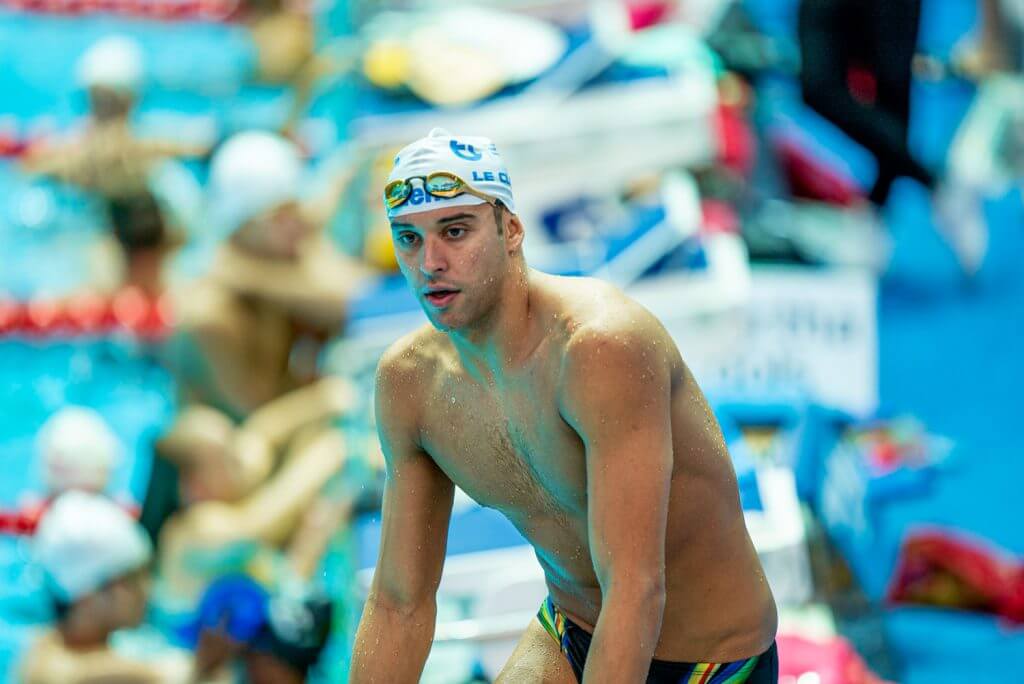
Chad le Clos and Sarah Sjostrom, the top two scorers at the International Swimming League‘s European Derby in London yesterday, believe Sun Yang should be banned for life. They have also called on FINA and the World Anti-Doping Agency (WADA) to “get tougher” on doping.
The Energy Standard Pro-team-mates would like to see first-time, instant lifetime bans for higher-category offences in general, believing too many responses to cheating too lenient. The League has a no-tolerance stance on doping and bars any who fall foul of the WADA Code.
In an interview with Swimming World, the Olympic and World champions, who raced to the helm of the MPV leaderboard in London at the weekend, also urged FINA to embrace the International Olympic Committee’s latest swing by staging podium ceremonies for those denied the moment of celebration by those who subsequently proven to have cheated.
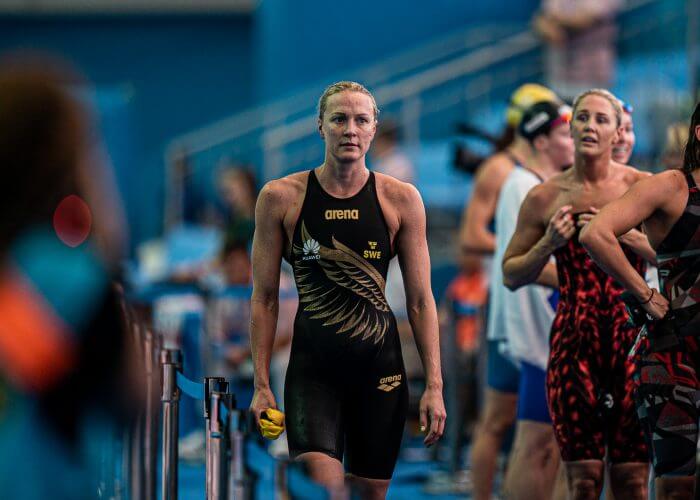
Sarah Sjostrom – Photo Courtesy: Becca Wyant
Both swimmers believe that Chinese swimmer Sun Yang, awaiting the judgement of the Court of Arbitration for Sport (CAS) over an acrimonious encounter with testers last year, should be banned for life for “unacceptable” behaviour. Le Clos described the events as “something we would never get away with and something that was totally unnecessary and should never have happened”.
WADA appealed a decision of the FINA Doping Panel to issue Sun with a caution but no penalty after an out-of-competition test visit ended with no urine sample being provided and a blood sample removed from the chain of custody. Beyond that, a container was smashed with a hammer outside the control room.
WADA argues that the removal of the sample from the chain of custody leaves Sun and entourage, including twice-banned Dr B Zhen, guilty on the charge of tampering.
Sun argues that doping officers did not follow proper notification procedures at the visit on September 4-5 last year that unfolded as an argument of more than four hours through the night. He objected to the identification presented by the officer there to observe him deliver a urine sample, while Dr. Ba took the blood sample back from the chain of custody after arguing that the blood nurse did not have a licence to draw blood outside the Shanghai region. Both officers targeted had served as doping officers on previous occasions without incident or complaint.
A panel of three CAS judges is due to deliver a verdict in the case early in the New Year. Since the CAS hearing of the appeal in Montreux two weeks ago, Sun has repeated his claim that he was acting not as an athlete with something to hide but as an athletes’ champion standing up for the rights of swimmers and others to have their own professionalism matched by the testers.
Some regard that claim as “extremely ironic” and “an absolute joke”, as Adam Peaty put it, given that Sun tested positive for a banned substance in 2014. In 2018, he could have “followed protocol, registered his objections but gone ahead with producing samples in the usual way, like we all have to”, Peaty suggested.
Le Clos, who finished second to Sun in the 200m freestyle at the Rio 2016 Olympic Games and wants “my gold medal”, echoed Peaty’s view when he told Swimming World:
“To put it bluntly it’s a joke. Look, it’s simple: ‘guys, you can come and take my blood, right; I have nothing to hide’. Take it!. What you gonna do with it? You can make another Chad, I don’t care, do what you want with it, whatever. I have nothing to hide. You can keep my blood for 10, 100 years, I have nothing to hide.”
“If he (Sun) was so skeptical of someone who legally wasn’t allowed to take his blood, why would he smash it [the container]? It’s just the dumbest thing. He knew there would be repercussions. It’s the dumbest excuse I’ve ever heard in my life. When I hear, ‘could be two years, could be four or eight’, it’s like no, man, it should be life for something like that after he already got caught’.”
Le Clos explained how he had behaved when he had serious concerns about a testing mission:
“If you have a problem, you just write it down. I remember the one time in South Africa, this guy took three attempts to try to get my blood … and I have huge veins … but he was an absolute amateur and was struggling to do it. He was a nice guy but [before] he had a fourth go, I said ‘look, my friend, we’re going to go to the hospital all together now because you don’t know what you’re doing’. I said to him ‘it’s no problem, you’re a nice guy but you can’t keep doing it like that. We’ll get a nurse to do it in the hospital’. I wrote that down on the form, to say ‘we asked a nurse at the hospital to do it because the officer didn’t know what he was doing’.”
That, said Le Clos, was the professional approach: it was what Sun should have done on September 4, 2018. The 200m butterfly Olympic champion of 2012 added: “What Sun Yang did is an absolute joke. He got caught in 2014 and he’s been cheating for a long time. It should be a lifetime ban. You’ve cheated. You’ve carried the ‘benefits’ forever.”
In general, Le Clos believed, “these guys are not cheating at the Olympics or the World Champs: they’re clean there but test them six weeks before and it might be a different story. They’re hiding in the mountains and you can’t get hold of them.”
Sun needed to hand back ill-gotten gains, Le Clos opined: “He took away my gold medal in Rio. There are guys working hard to scrape into finals over 200, 400, 1500 – but they know they’re not going to beat him because he’s juiced up.” All responsibly for anti-doping needed to “get tougher on doping cheats.”
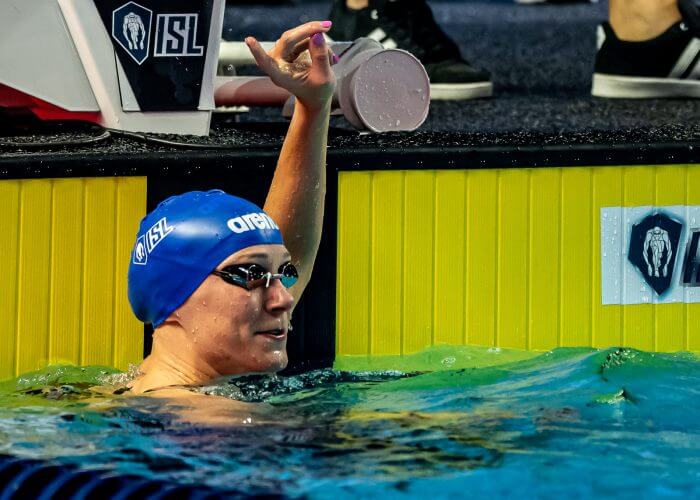
Sarah Sjostrom – Photo Courtesy: Peter H. Bick
Sjostrom agreed with Le Clos’ call for lifetime bans in circumstances that “deserve no second chance”. She said:
“I think, as Chad said, it should be a lifetime ban, especially when something happens for the second time. Everyone needs a second chance for cases where there was doubt or a mistake was made [like a] cough remedy. That’s different for things like EPO and so on: they must know what they are doing. There should be no excuses.”
Le Clos also described as ‘ridiculous’ the story of how Korea’s Park Tae Hwan tested positive in 2015, after he attended a hospital and received an injection that contained testosterone.
Sun, Park, Yuliya Efimova were among swimmers who raced at the Rio 2016 Olympic Games after they had return from suspensions for doping offences.
Changing The Narrative Of A Swimmer’s Story and Status
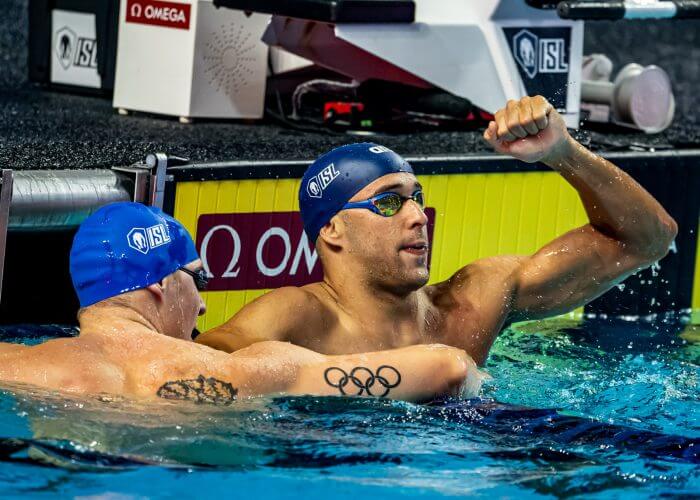
Chad Le Clos – Photo Courtesy: Peter H. Bick
Le Clos pointed to his 9 golds and 2 silvers in global short-course championships, the two silvers behind swimmers who had served doping bans. At the Olympic Games, his silver in the 200m freestyle was claimed as the first man home with a clean record behind Sun.
He wanted his record to show the “true result”, with two gold and two silver medals at the Olympic Games of 2012 and 2016.
“No African has ever done what I’ve done – and it should be 2 gold, 2 silver heading into my third Olympics. Its not even the financial side of things; it’s about the legacy.”
Both Le Clos and Sjostrom urged FINA to embrace the IOC’s Take The Podium project, in which ceremonies are staged for athletes deprived of their moment by those who cheated.
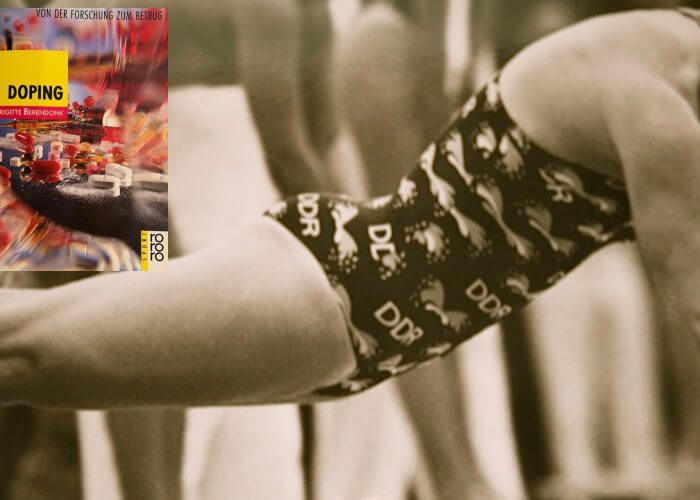
What suited the GDR – and how Brigitte Berendonk told the story of systematic doping and State Research Plan 14:25 – Main Photo Courtesy: NT Archive/Craig Lord
FINA is likely to view that request with great caution: the federation, in common with any of its members, turned a blind eye to a vast library of evidence showing how the German Democratic Republic had doped some 10,000 athletes over two decades, swimming a sport more affected than most. Not a single record of result has even been changed or even considered for change.
Such things have left people nursing the scars of injustice throughout their lives, Le Clos suggested. He reached for the difference in 2012 and 2016 in his own story, saying:
“Look at South Africa’s Rugby World Cup winners: they had parades, were treated like heroes and quite right, too. That was like London 2012 for me. With silver, it wasn’t like that in 2016: in fact there was none of that at all. If I’d have lost to James Guy or someone like that, fair enough but to lose to a proven cheat makes it hard to take. That isn’t hearsay we’re talking about. He (Sun) had tested positive. We had no trust in him standing on his blocks clean.”
In 2014, Swimming World joint SwimVortex in calling for reconciliation ceremonies for the victims of GDR doping and those cheated out of just rewards as well as the removal of FINA prizes given to officials and doctors who were subsequently handed criminal convictions for their role in systematic doping.
The call was considered by a FINA media commission, which unanimously voted to have FINA’s ruling Bureau consider the case for addressing the issues and staging Take The Podium ceremonies. To this day, there has been no response from FINA’s leadership.




I agree with and respect Chad and Sarah even more now. Of course, get ready for the claims of “RACIST!!!”, or, “SORE LOSER!!!”……. But it is nice to be able to make those accusations with conviction knowing most in the swimming community support those words. Most, but not all…..
Do I expect anything positive to come of this? Hell, no. I’m still waiting for the swimmers from the 1973 World Championships to receive the medals that were STOLEN from them by the DDR. Most people go back to 1976, but it BEGAN in 1973!!!!! 1973, 1974, 1975, 1976, 1977, 1978, 1980, 1981, 1982, 1983, 1985, 1986, 1987, 1988, 1989, 1991, 1992, 1994, 1996, 1998…..and so on……
I’m thrilled and happy that Sarah and Chad have come out in support of REawarding those medals, but let’s start at the very beginning…a very fine place to start.
Le Clos said Sun robbed James Guy of his Olympic bronze medal, but shouldn’t Guy be the silver medalist according to his theory, considering the doping case of Conor Dwyer? Also, Le Clos once said Magnini is his bro and wished him good luck when Magnini announced his retirement following the doping scandal in 2017. I wonder whether he thinks Magnini should return his medals to those who competed with him too. Does he have a strong opinion on doping or just Sun himself?
Kelly, you would have to ask Chad but I assume he counts Sun and not Dwyer in his count because one swimmer had a doping record when he took to his blocks and beat others; the other did not. I don’t judge that: it’s just fact. On Magnini, the timeline also shows that at the time Magnini retired, there was speculation about a doctor and a link to an address a parcel containing suspect products had been sent to… there was no ban, just an inquiry. It is actually important to quote swimmers in context. You cite Chad Le Clos in the context of time shifted to suit the argument. AS stated, you would have to ask him what he NOW thinks of those situations. I felt no need to when dealing with a prevailing story but I have no doubt if and when I do ask those questions, Chad le Clos would be happy to answer.